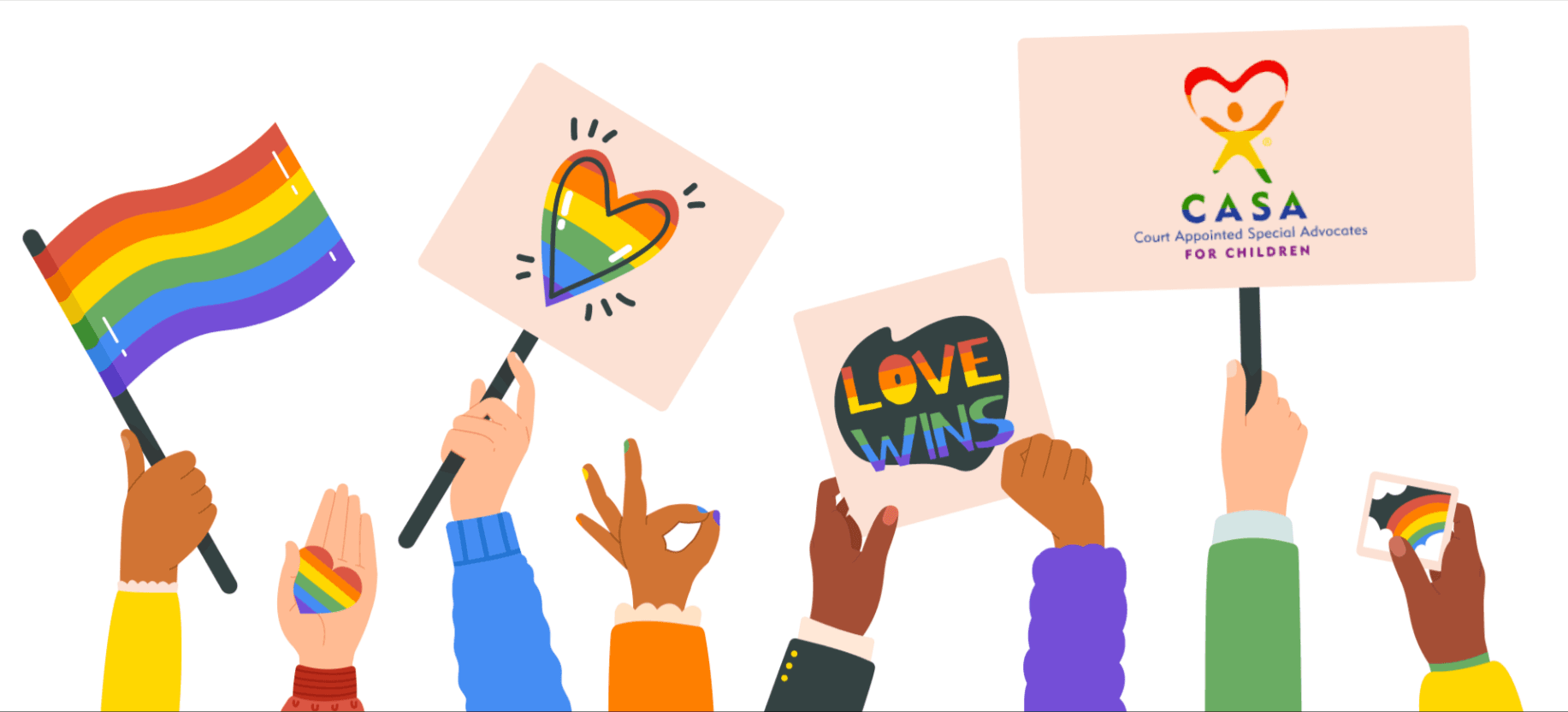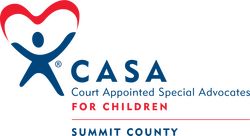
Akron, Ohio (June 6, 2024) - Written by the CASA Board Volunteer Association
The summer of 1969 and the Stonewall Uprising forever cemented PRIDE into American tradition. Each June PRIDE month is celebrated across the country by the LGBTQIA community.
For foster care youth this may not be a time where they are able to celebrate. Approximately 1 out of every 3 youth in foster care identify as LGBTQ+ (Human Rights Campaign). LGBTQ+ children and youth in foster care often face heightened vulnerabilities due to discrimination, family rejection, and a lack of understanding from caregivers and peers. These individuals are disproportionately represented within the foster care system and are at a higher risk of experiencing homelessness, mental health issues, and inequities. Within the foster care system LGBTQIA youth are overrepresented compared to their peers not within foster care. LGB youth are 2.5 times more likely to be placed in foster care than their heterosexual peers (Fish et al., 2019).
We know that resilience is key when it comes to youth in foster care. Hope theory suggests individuals with higher hope who experience Adverse Childhood Experiences (ACEs) can use hope as a buffer, allowing them to bounce back faster and achieve their goals by developing pathways to their goals and personal agency or motivation (Snyder, 2002).
Court Appointed Special Advocate (CASA) or Guardian ad Litem (GAL) volunteers have a unique opportunity and responsibility to ensure that LGBTQ+ children and youth in foster care are seen, heard, and supported. By understanding the specific needs and challenges faced by this population, volunteers can advocate more effectively and compassionately on their behalf. By collaborating with caregivers, caseworkers, educators, and other professionals a CASA/GAL is able to advocate for permanency for youth by providing neutral recommendations to the court.
Without intervention, the odds are stacked against children in foster care. A child with a CASA/GAL volunteer spends 20 percent less time in foster care, on average, compared to a child without a CASA/GAL volunteer. Studies show children with a CASA/GAL volunteer receive more services that are critical to their well-being and are four times more likely to find a permanent home.
How can you advocate locally?
Show support for LGBTQ+ children and youth by being a visible and vocal ally. By volunteering 5-10 hours of time each month, community volunteers like you, can advocate for abused and neglected youth through the CASA/GAL Program of Summit County. Apply as a volunteer for our next training.

